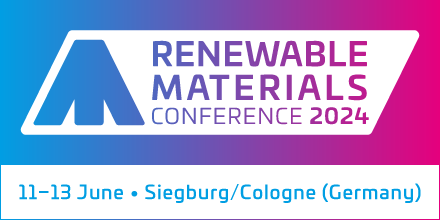Coverage of the Renewable Materials Conference in Siegburg, Germany.
It was another awesome Renewable Materials Conference this year, thanks to the Nova-Institut GmbH team! The main sessions on Day 1 featured an overview of the chemical industry, particularly what is happening in Europe; several perspectives from European chemical companies on their renewable carbon strategies; European policy updates; and a view on China’s growing bioeconomy strategies and renewable chemical capacity developments. There were also parallel sessions covering specialty chemicals and technologies, such as new surfactants and alternative rubber materials, the sustainability of CCUs, and new adhesives and coatings technologies. Here are some of my takeaways:
🌿 The European petrochemical industry is undergoing a massive restructuring in production and capacity. The renewable chemical industry can help revive and simultaneously revolutionize Europe’s chemical landscape toward a better, more sustainable future. For example, BASF cited using the mass balance approach that could replace fossil feedstocks with sustainably sourced circular feedstocks in existing, efficient, complex, and interlinked production systems. However, there was consensus among chemical companies that customers require further education on how mass balance works. Brand companies are not averse to using segregated renewable chemicals and materials. Still, the challenge is feedstock availability (biomass, recycled plastic, or captured CO₂) to provide this solution.
🌿 The renewable chemical industry in Europe is trying to reconcile the need for policies and incentives to drive market demand for sustainable products within a landscape replete with restrictive feedstock policies. Such policies may curtail investments in renewable chemicals and materials. There is a consensus that the renewable chemical industry in Europe is not being treated fairly when it comes to policy implementation compared to its fossil-based counterparts. To cite one example, it was shared that there are limited issues importing natural gas or crude oil for chemical manufacture, yet renewable chemicals and materials manufacturers have to go through several policy hurdles to be able to obtain the bio-based feedstock needed.
🌿 European chemical companies are at the forefront of renewable chemicals and materials commercialization. One of the attendees asked a question that led to a discussion of whether or not China is already surpassing Europe in terms of capacity build-up for bio-based chemicals and materials. Nova-Institut’s Ann Zhang noted China’s 14th Five-Year Plan, which commenced in 2022, is focused on implementing a bio-based economy. The Plan aims to promote the growth of bioenergy, replace traditional chemical feedstocks with bio-based alternatives, and develop bio-processes as substitutes for conventional chemical processes. Nova-Institut recently released a report on the rapid growth of China’s bio-based and biodegradable plastics industries, largely driven by policy incentives despite being in its early stages. The industry is expected to expand significantly from 765,631 tonnes in 2023 to 2.53 million tonnes in 2026, representing a significant CAGR of approximately 49%.
🌿 TÜV AUSTRIA, the Renewable Carbon Initiative (RCI), and the Nova-Institut introduced a new certification scheme, “OK Renewable Carbon.” The certificate and label indicate what percentage of the carbon in the product already consists of renewable carbon or has been substituted in production. This is the sum of bio-based, CO₂-based, and recycled carbon in the product. This “OK renewable carbon” certificate is a meta-label, as it builds on other established certificates and combines them into a new label. It was developed by TÜV AUSTRIA, which also carries out the certifications. As I’ve mentioned in my previous LinkedIn post, this certification should be helpful for end-product companies that are wary of using the mass balance system. In this case, they can ascertain the renewable content share of the final product and market this product without the fear of being labeled as greenwashing.
My Day 2 coverage of the Renewable Materials Conference will be published on Tuesday.




